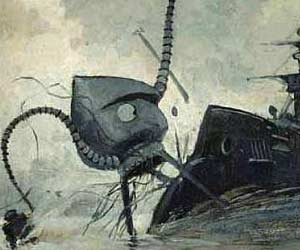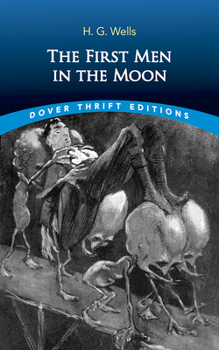The First Men in the Moon
Select Format
Select Condition 
Book Overview
Of the enormous body of work produced by H. G. Wells -- more than a book a year over the course of half a century -- the early science fiction novels that first made him famous have proved to be the most enduring and have earned him the sobriquet "the father of modern science fiction."
In the 1901 classic The First Men in the Moon, Wells reveals not only a fertile imagination at ease with biological and astronomical phenomena, but also...
Customer Reviews
A fun read, and a fascinating sci-fi book
H.G. Wells at his best
Maybe my favorite sci-fi book of all
Excellent annotation for excellent science fiction
Great development of characters
The First Men in the Moon Mentions in Our Blog

A hundred years ago, novelist H.G. Wells predicted that science would be "king of the world." Titanic's Jack Dawson may take issue with that claim, but he’d have a tough time disputing the compelling influence Wells had on politics, society, and the future that extended far beyond the literary realm. Considering Wells is one the founding fathers of sci-fi (along with Jules Verne and Edgar Rice Burroughs) and the author of The Time Machine, The Invisible man, The Island of Dr. Moreau, and The War of the Worlds, that's saying something.






